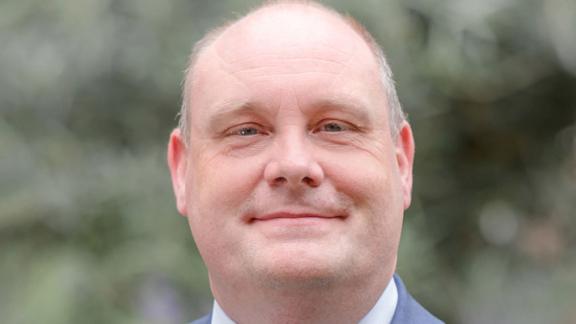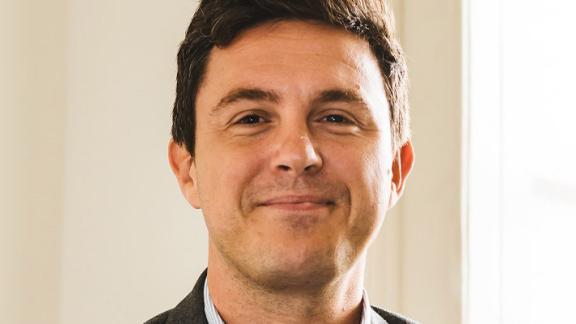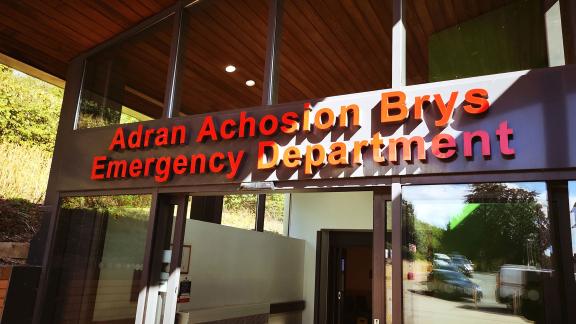NHS Reset: How will St John Ambulance volunteers step up to the future?

NHS Reset is an NHS Confederation campaign to help shape what the health and care system should look like in the aftermath of the pandemic.
In this blog, Richard Lee, chief operating officer at St John Ambulance, describes how the service has risen to the challenge of COVID-19 and its hope to always be in a position to be able to respond to future health crises.
formalising our emergency support to the NHS in such a way that ensures we’ll always have a surge capacity of clinically skilled volunteers to respond to future health crises
St John Ambulance volunteers have achieved so much since the COVID-19 pandemic hit our shores, it’s hard to know where to start. Instead of giving first aid to those in need at football stadiums, music festivals and community fairs, thousands of our people found themselves donning PPE over their uniforms to volunteer in hospital emergency departments, crew ambulances and run vital community services up and down the country. They stepped up big time and have, to date, spent around 200,000 hours working alongside NHS professionals caring for patients and thousands more hours training our people and readying our equipment and fleet.
The response to St John’s presence in these difficult settings at this time of need has been unequivocal: “Absolutely invaluable”, “acted with professionalism” and “immensely grateful” are the types of comments we’ve become used to hearing from NHS staff, both on the ground and in leadership, as well as from patients. We know that our help, which has included the provision of ambulance vehicles too, has been of great value.
Of course, despite the urgency of the situation we weren’t able to throw our volunteers into the deep end without specialist additional training. As with so many other aspects of life during this health crisis, changes had to be made at exceptional pace and scale to enable us to deploy so many so quickly. We shifted our operational structure to allow for faster decision-making and used digital tools to speed up the training. A bespoke COVID-19 care module was created to prepare our people to operate safely - so far, more than 3,000 have completed this training.
We also know that we were well placed to manage this feat. With our clinically skilled volunteer base, countrywide presence, reach and scale as well as our longstanding partnership with key health players, St John offers a truly unique package. Although they needed extra training relating to the pandemic, our volunteers already had the knowledge to deal with health emergencies and are skilled at caring for members of the public. They didn’t only comfort patients in hospital or run errands for doctors and nurses, they took vital observations. Our ambulance crews included paramedics who gave vital care to very sick patients.
Such a deployment during this national health emergency would have been impossible without the experience and infrastructure of our charity. Thanks to our history of serving communities the way we do, we already had in place strong existing relationships with a multitude of NHS partners, from hospital and ambulance trusts to services such as NHS Blood and Transplant, which we have also supported significantly in recent months. Our exceptional clinical standards and experience of working with the NHS in treating and transferring patients meant that we were trusted and welcomed.
The question, now, is how will we build on what’s been achieved since March? How will we make the most of these unmatched levels of commitment, motivation and expertise among our thousands of volunteers, so they can step up again and again in times of national need?
We believe the answer lies in formalising our emergency support to the NHS in such a way that ensures we’ll always have a surge capacity of clinically skilled volunteers to respond to future health crises. St John already has a maintained ambulance fleet and a reserve of trained people whose skills are regularly updated, so it makes sense.
Our confident hope is that, with the right support, we will grow as the recognised and trusted health reserve of the nation ready to be mobilised in times of need.
Richard Lee is chief operation officer of St John Ambulance. Follow them on Twitter @stjacoo and @StJohnAmbulance



